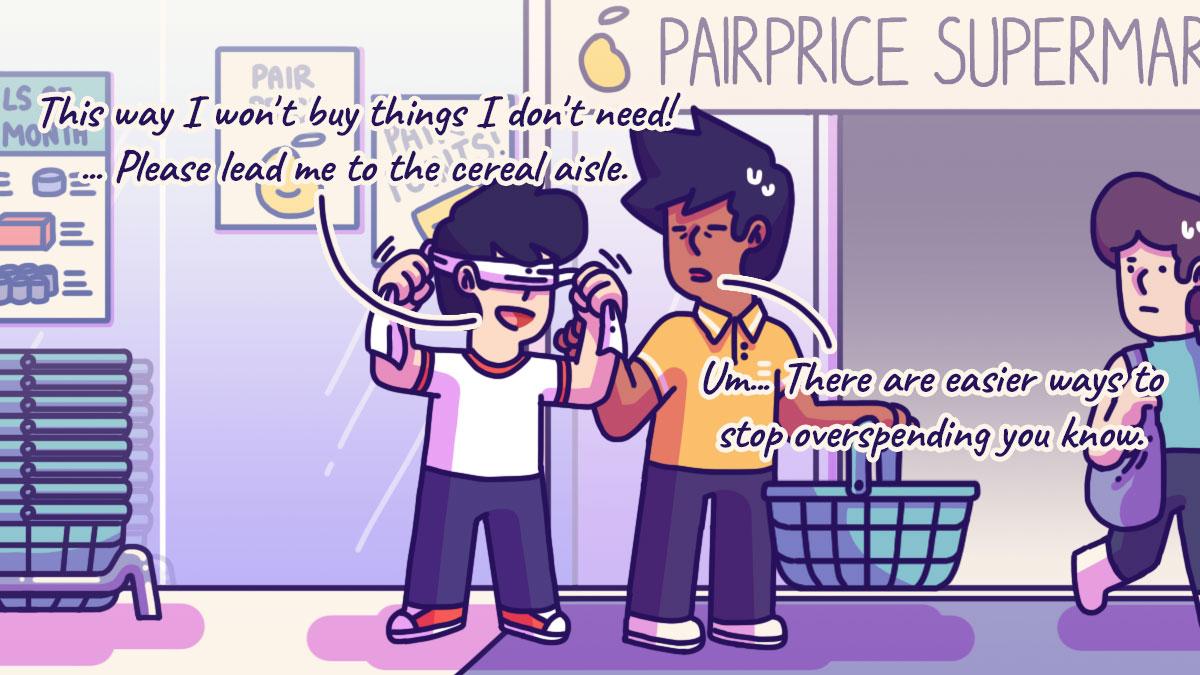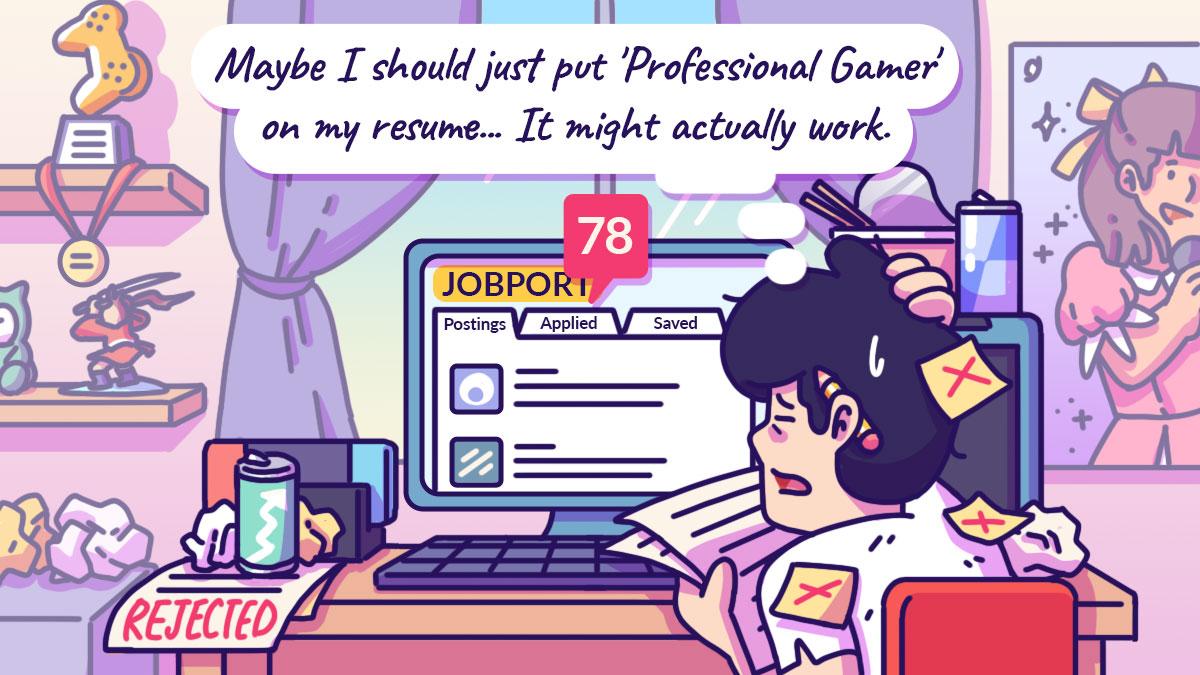Finances are one of the top stressors for couples, not just those who are married. And if left unaddressed, they hamper a relationship.
Yet, somehow money is still largely a taboo topic between spouses and couples, though it’s one of the most important conversations one should have in life, especially if they’re about to share said life with somebody else.Finances affect so many aspects of our lives — from our personal expenses to paying for household bills and eventually funding our children’s education. Hence, even if you try to avoid it, talking about money is inevitable.This is because you’re sharing financial goals, or at the very least financial obligations like the monthly mortgage repayments for your house, renovation loans, and maybe even raising children. There’s no running from it all: the typical married couple is going to have their work cut out for them.
Which is why we asked three married couples a single question, to learn from their experiences:
“What’s changed in the way you manage your finances after marriage?”
‘It’s not always 50/50’
Aish and Dilip started out searching for a home with the same goal in mind: paying it off without taking on a huge, unnecessary loan.

They knew from the get-go that their financial commitments would shift and increase over time as their needs and wants would change in different phases of their life. And now that they’re both homeowners of their very own resale flat, the way they split their finances is not as clear cut as simply being 50/50 or going dutch for every meal.
“He settles the utilities and I focus on food-related matters,” Aish said, “but the lines blur every now and then. Sometimes we get rebates and discounts on certain months for our bills, so then we’ll change the way we split the load for groceries and provisions.”
Their approach to finance is to work closely together and make sure their goals are aligned. Right now, the couple is determined to focus on “building wealth instead of just maintaining a large savings account”, so they’ve begun investing as well, in addition to “hunting for cheap deals” together.
‘We make compromises where we can on our spending’
The biggest change in
Klaire and Winston’s’s finances was the introduction of a joint bank account into their lives, following their wedding costs and renovation costs for their resale flat.

“There are more commitments, the bills are huge, but the good part is that now two people are contributing,” she said. “We contribute a fixed amount to put into our joint account every month.”
They also had to come to an agreement on how they spent their money, and on what. For example, the couple decided to try and halve their expenditure on taxi fares. They now make it a point to take public transport to their destination before calling for a Grab to get back home.
“Now there’s a lot more consideration going on before we spend our money,” she said. It’s not surprising; long gone are the days where you spend money only for yourself.
Managing each other’s financial expectations

For Isabella and her husband, the “biggest difference” in the way they manage their finances is with the joint account they opened up. It’s meant for joint purchases such as house renovation costs, financing their home loan, paying the bills and buying weekly groceries.
For personal expenses like clothes and makeup, she keeps an individual savings account.
But when she started working freelance, the couple had to reassess how much each person would contribute monthly to the joint savings account.
“We started out contributing an equal share, but after some discussion, we decided I’d contribute less because of my freelance work, and because we’re preparing for a new addition to our family,” she said.
“I think it’s important to be comfortable with talking about such matters with our partner, so as to manage our financial expectations.”
The common factor in all these experiences? Being able to have a conversation with one’s partner about money, to make compromises and agree on financial decisions together.
Marriage — and every other relationship — is a two-way street, after all. Whether it’s about the small things, like how often you can take a taxi, or about the big things, like reducing (or increasing) your monthly contribution for the family, both people have to be in it to win it.
The biggest change, then, might be that you now have an extra pair of hands (and another brain) to work all of this out and get this adulting thing right — together.
 They knew from the get-go that their financial commitments would shift and increase over time as their needs and wants would change in different phases of their life. And now that they’re both homeowners of their very own resale flat, the way they split their finances is not as clear cut as simply being 50/50 or going dutch for every meal.
“He settles the utilities and I focus on food-related matters,” Aish said, “but the lines blur every now and then. Sometimes we get rebates and discounts on certain months for our bills, so then we’ll change the way we split the load for groceries and provisions.”
Their approach to finance is to work closely together and make sure their goals are aligned. Right now, the couple is determined to focus on “building wealth instead of just maintaining a large savings account”, so they’ve begun investing as well, in addition to “hunting for cheap deals” together.
They knew from the get-go that their financial commitments would shift and increase over time as their needs and wants would change in different phases of their life. And now that they’re both homeowners of their very own resale flat, the way they split their finances is not as clear cut as simply being 50/50 or going dutch for every meal.
“He settles the utilities and I focus on food-related matters,” Aish said, “but the lines blur every now and then. Sometimes we get rebates and discounts on certain months for our bills, so then we’ll change the way we split the load for groceries and provisions.”
Their approach to finance is to work closely together and make sure their goals are aligned. Right now, the couple is determined to focus on “building wealth instead of just maintaining a large savings account”, so they’ve begun investing as well, in addition to “hunting for cheap deals” together. “There are more commitments, the bills are huge, but the good part is that now two people are contributing,” she said. “We contribute a fixed amount to put into our joint account every month.”
They also had to come to an agreement on how they spent their money, and on what. For example, the couple decided to try and halve their expenditure on taxi fares. They now make it a point to take public transport to their destination before calling for a Grab to get back home.
“Now there’s a lot more consideration going on before we spend our money,” she said. It’s not surprising; long gone are the days where you spend money only for yourself.
“There are more commitments, the bills are huge, but the good part is that now two people are contributing,” she said. “We contribute a fixed amount to put into our joint account every month.”
They also had to come to an agreement on how they spent their money, and on what. For example, the couple decided to try and halve their expenditure on taxi fares. They now make it a point to take public transport to their destination before calling for a Grab to get back home.
“Now there’s a lot more consideration going on before we spend our money,” she said. It’s not surprising; long gone are the days where you spend money only for yourself. For Isabella and her husband, the “biggest difference” in the way they manage their finances is with the joint account they opened up. It’s meant for joint purchases such as house renovation costs, financing their home loan, paying the bills and buying weekly groceries.
For personal expenses like clothes and makeup, she keeps an individual savings account.
But when she started working freelance, the couple had to reassess how much each person would contribute monthly to the joint savings account.
“We started out contributing an equal share, but after some discussion, we decided I’d contribute less because of my freelance work, and because we’re preparing for a new addition to our family,” she said.
“I think it’s important to be comfortable with talking about such matters with our partner, so as to manage our financial expectations.”
The common factor in all these experiences? Being able to have a conversation with one’s partner about money, to make compromises and agree on financial decisions together.
Marriage — and every other relationship — is a two-way street, after all. Whether it’s about the small things, like how often you can take a taxi, or about the big things, like reducing (or increasing) your monthly contribution for the family, both people have to be in it to win it.
The biggest change, then, might be that you now have an extra pair of hands (and another brain) to work all of this out and get this adulting thing right — together.
For Isabella and her husband, the “biggest difference” in the way they manage their finances is with the joint account they opened up. It’s meant for joint purchases such as house renovation costs, financing their home loan, paying the bills and buying weekly groceries.
For personal expenses like clothes and makeup, she keeps an individual savings account.
But when she started working freelance, the couple had to reassess how much each person would contribute monthly to the joint savings account.
“We started out contributing an equal share, but after some discussion, we decided I’d contribute less because of my freelance work, and because we’re preparing for a new addition to our family,” she said.
“I think it’s important to be comfortable with talking about such matters with our partner, so as to manage our financial expectations.”
The common factor in all these experiences? Being able to have a conversation with one’s partner about money, to make compromises and agree on financial decisions together.
Marriage — and every other relationship — is a two-way street, after all. Whether it’s about the small things, like how often you can take a taxi, or about the big things, like reducing (or increasing) your monthly contribution for the family, both people have to be in it to win it.
The biggest change, then, might be that you now have an extra pair of hands (and another brain) to work all of this out and get this adulting thing right — together.










